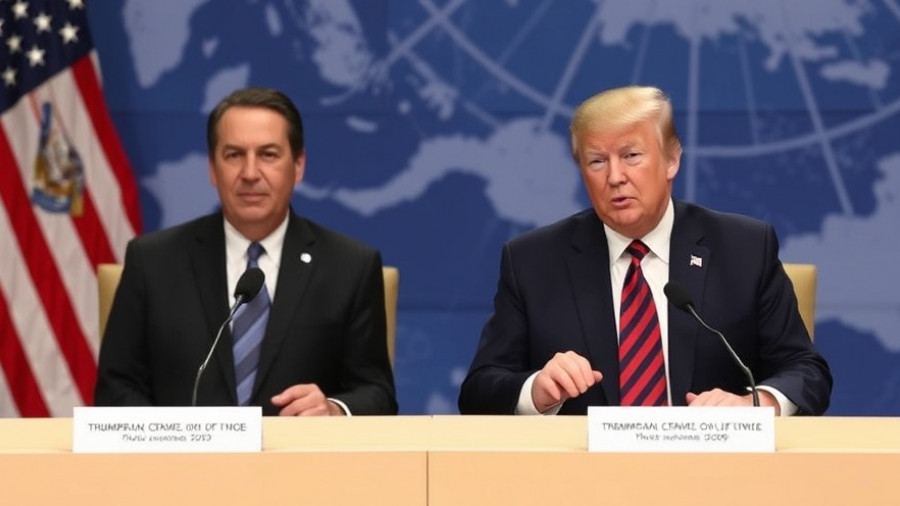
US Absence at COP30: A Signal for Global Climate Action?
The upcoming UN climate talks in Brazil, COP30, are set to commence without a high-level presence from the United States, largely due to the Trump administration's clear opposition to climate initiatives. This move is unprecedented as it marks a historic departure from previous U.S. participation, which even continued during less favorable sentiments toward climate policies. The absence raises questions about America's commitment to international climate cooperation amid an escalating climate crisis.
Implications of Skipping Multilateral Climate Talks
For nearly three decades, the U.S. has maintained a presence at UN climate summits, often sending delegations regardless of the prevailing administration's views on climate change. However, as noted by Todd Stern, a former U.S. climate negotiator, the current administration’s deliberate disengagement from cooperative climate dialogues poses serious risks. The global community might perceive this as an erosion of commitment to combating climate change, contradicting the urgency expressed by scientists and activists alike.
Examining Trump's Climate Stance: What Lies Ahead?
President Trump has consistently labeled climate change efforts as a "hoax" and suggested withdrawing from the Paris Agreement, which aims to limit global temperature rise. The administration emphasizes a focus on traditional energy sources over renewable technologies, stating that pursuing such vague climate goals jeopardizes economic and national security. This perspective ignites a divide, prompting other nations to question the viability of world-wide agreements and their potential for success without a leading global player like the U.S.
Localized Responses and Global Reactions: A Community Perspective
As discussions unfold internationally, the impacts are being felt locally. For homebuyers, sellers, and property investors in areas like Dumfries, the outcomes of COP30 could have significant repercussions on real estate values and community planning. Awareness of climate initiatives will guide buyers toward sustainable properties, and as eco-friendly living becomes more desirable, it will influence buying preferences and investment choices.
Feeling the Heat: The Emotional Impact of Climate Inaction
The sense of urgency surrounding COP30 isn’t just political; it’s deeply personal. Homeowners and potential buyers are increasingly aware of the changes unfurling in their environment. From rising sea levels to extreme weather patterns, these concerns hit close to home, urging communities to take local action. The absence of U.S. representation might lead individuals to feel disheartened, but it can also galvanize local initiatives, motivating grassroots movements to push for sustainable urban development.
What Can We Do? Taking Local Action
In light of a lack of national leadership in climate action, individuals can make a difference right at home. Engaging in local sustainability initiatives, investing in eco-friendly upgrades for properties, and supporting policies that promote green living can collectively manifest significant change. As residents in Dumfries and beyond, understanding the interconnectedness of climate policy and local actions can drive proactive decisions in our communities.
Conclusion: The Path Forward for Communities
As long as there is no sign of the U.S. engaging in international climate talks, it is essential for communities to band together to advocate for sustainable development. Ensuring that our voices are heard at local levels can create momentum for necessary change, regardless of who attends global summits. Residents need to recognize that every action counts in the fight against climate change.
Incorporating sustainable practices into our homes not only adds aesthetic value but can also promote a healthier planet. Are you ready to make a change?
 Add Row
Add Row  Add
Add 





Write A Comment